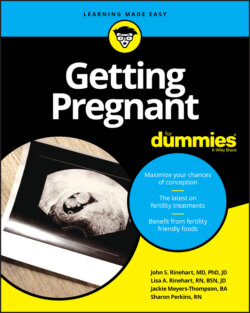Читать книгу Getting Pregnant For Dummies - Sharon Perkins - Страница 45
Recognizing the importance of regular periods
ОглавлениеDo your periods always come every 28 days like clockwork? If they do, you’re a rarity; only one in ten women fall into what we’ve been conditioned to think of as a “normal” menstrual pattern. Most women have cycles 25 to 31 days apart.
When your doctor asks you how long your cycles are, he’s asking how many days are between Day 1 of one period and Day 1 of the next period. When he asks how long your period is, he’s asking how many days you bleed. Day 1 of your period is the first day of normal (for you) flow, not the day when you have light or irregular spotting before your period starts.
If you are on, or have been on, birth control pills, be sure to note that in charting your menstrual pattern. The pill chemically coordinates your cycle to come at the same time each month (provided you take the pill correctly!).
What’s regular for you may not be regular for someone else but having some sort of pattern to your periods is important because it indicates that you’re producing and releasing eggs on a regular basis. But just because a woman is having periods does not give us any further information about egg quality or whether her uterus can support a pregnancy.
If your cycles are very long or very irregular, you may not be maturing eggs, you may not have sufficient hormone levels, or there may be other underlying medical issues. See the next section, “Understanding the causes of malfunctioning menstrual cycles” for more on how irregular cycles affect your chance of getting pregnant.
